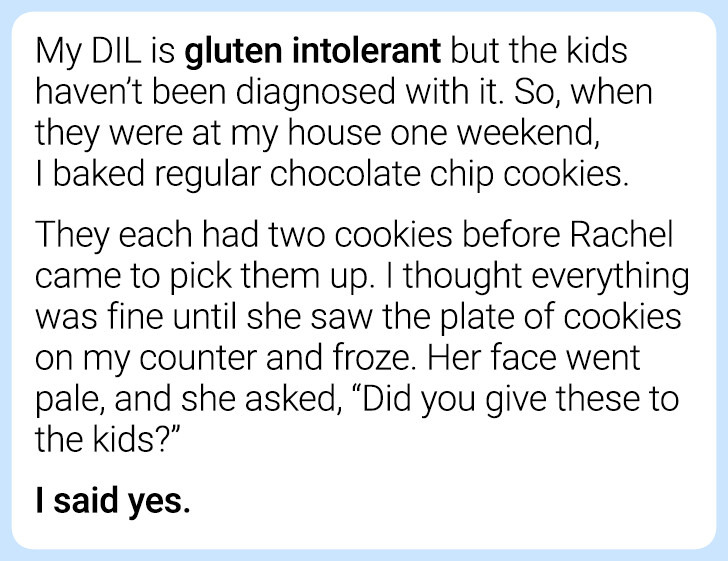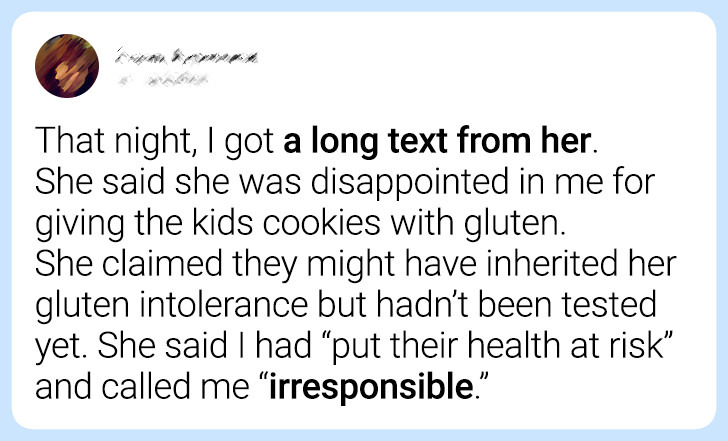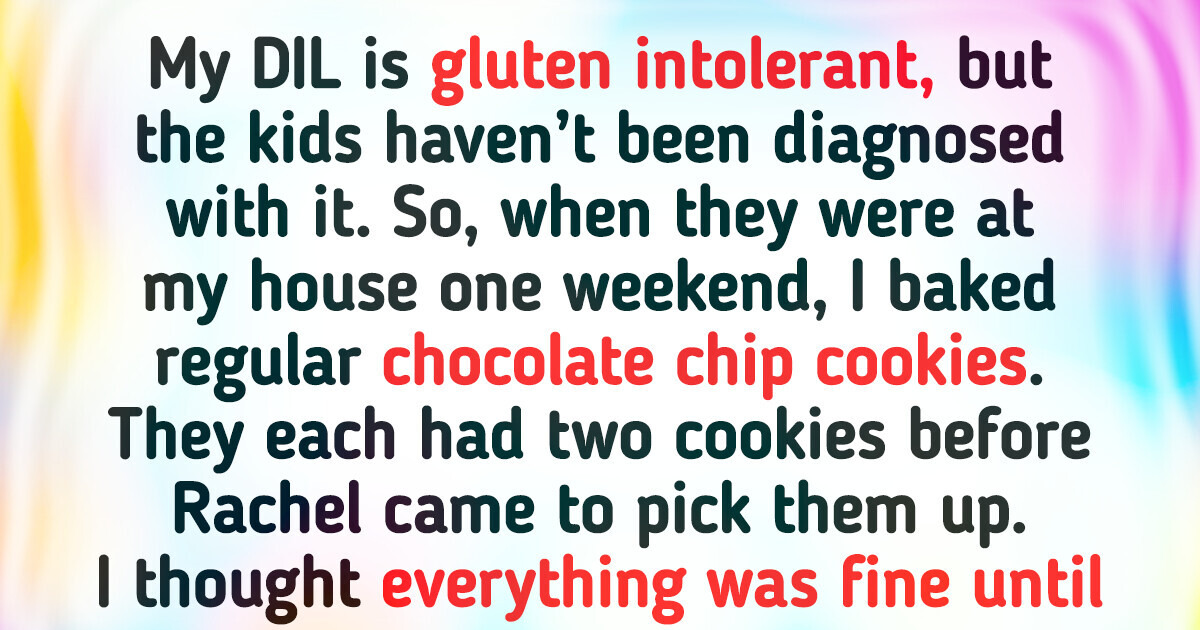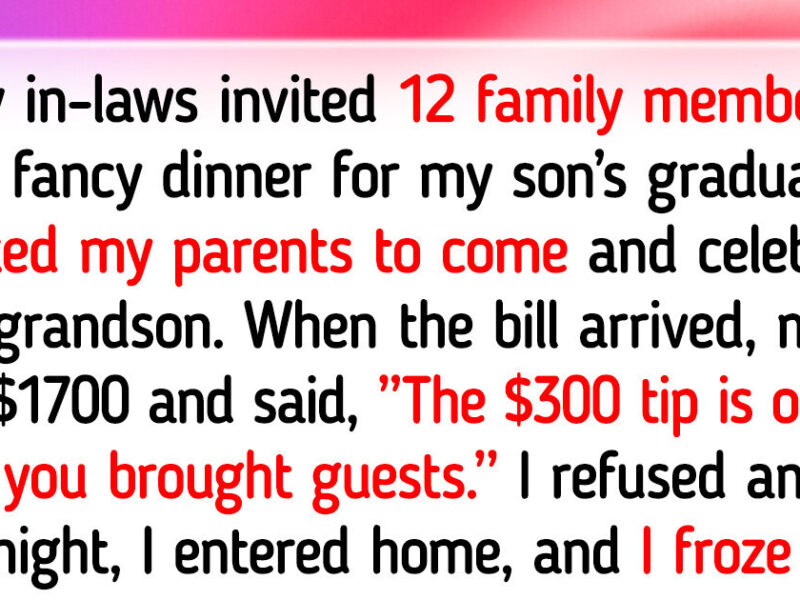My DIL Cut Me Off From My Grandkids Because She Thinks I’m Unsafe / Bright Side
Margaret, a 55-year-old grandmother, recently shared her story with us, and it’s one that tugs at the heartstrings.
She used to spend her days with her two grandkids, Liam (5) and Sophie (3), playing games, and reading bedtime stories.
But six months ago, her daughter-in-law, Rachel, said she was “unsafe” for the kids. Since then, Margaret hasn’t seen them. Now, she’s left hurt, confused, and wondering what went wrong.

Rachel didn’t yell or make a scene, but it was clear she was upset. She quickly gathered the kids, mentioned they had to leave, and walked out without making eye contact.

Margaret was shocked. She had no idea Rachel was testing the kids for gluten issues. They seemed fine after the cookies, but Rachel didn’t agree. After that, Rachel started canceling visits and avoiding babysitting requests.
Then, Margaret’s son Mark called, saying, “Rachel doesn’t feel comfortable leaving the kids with you anymore.” When Margaret asked why, he added, “She doesn’t think you respect her parenting choices.” The hardest part is how much Margaret misses her grandkids. She misses Sophie’s giggle during hide-and-seek and Liam’s excitement when he shares his latest dinosaur discovery.
Sometimes spending too much time with family members without discussing personal choices and preferences can lead to conflict.
Relationships with in-laws can be full of joy and connection—at least in theory. When people marry, they often imagine gaining a new family and a bigger support system. In fact, a 2012 study from Purdue University found that most couples expect to have positive relationships with their in-laws.
But in-law dynamics can be tricky because there are no clear guidelines. For instance, there’s no set rule about how close you should live to your in-laws, how often you should see them, or what responsibilities each side should take on. Spending too much time together without personal space can lead to tension, especially during events like holidays.
As life changes, so can relationships with in-laws, offering chances to improve them over time. If you’re unsure how to handle a situation, reaching out to a family therapist or psychologist can provide helpful guidance.
Curious about the symptoms of gluten intolerance? Check out our article—you might be surprised by what you learn!
12 Ways Your Body May Be Telling You That You Have Gluten Sensitivity




